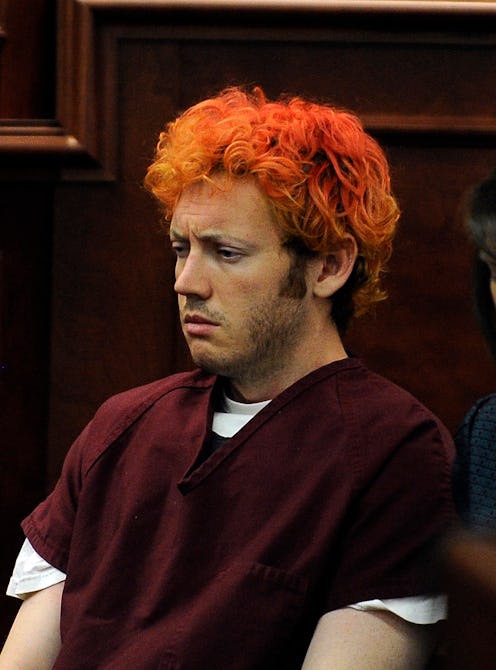News
Colorado's Death Penalty Laws Are Complicated
A jury on Thursday found James Holmes guilty of murder for the July 2012 Aurora, Colorado attack. Holmes went on trial for killing 12 individuals and injuring 70 others during a shooting rampage at a Colorado theater during a showing of The Dark Knight Rises. Two years later, despite pleading innocent by reason of insanity, Holmes has been found guilty on multiple counts of murder, effectively making him eligible for the death penalty. But although Colorado technically permits capital punishment, the state's relationship with the practice is complicated.
Although Colorado does have the death penalty, the state has not imposed it on anyone since 1997. In the entire history of the state, 101 individuals have been sentenced to death. But since the Supreme Court ruled the death penalty constitutional in 1978, only one man has executed by lethal injection — Gary Lee Davis, who was found guilty in the abduction, rape, and murder of a Colorado woman.
There are currently three individuals on death row in Colorado. All three are men guilty of murder. None of the current inmates have been found guilty of more than four murders, however. Homes was found guilty of all 24 of his charges.
Colorado is one of the 32 states in which capital punishment is legal, although many consider it a de facto addition to the 12 states that have outlawed the death penalty. Part of this is due to Governor John Hickenlooper, who has placed a moratorium on state executions during his time in office.
In 2013, Hickenlooper granted a temporary reprieve to one of the three inmates on Colorado's death row. As a result, Colorado has joined Washington, Oregon, and Pennsylvania as states that allow the death penalty, but whose current governor has imposed a prohibition of sorts.
Holmes' defense team had urged that jurors find Holmes not guilty by reason of insanity, which would likely have resulted in the gunman spending life in a mental facility. However, after a 12-hour deliberation that found Holmes guilty of murder, he is now no longer eligible for the insanity defense. During the next phase of the trial, jurors must determine whether 27-year-old Holmes will spend life in prison or be sentenced to die.
The nation remains divided on whether the death penalty should be allowed, with only 56 percent of the population supporting it, compared to 80 percent in 1990. However, initial response to Holmes' sentencing indicates that many are calling for capital punishment in his case.
It may be up to a month before the final punishment is handed down. Holmes' guilty verdict comes just four days before the three-year anniversary of the shooting.
